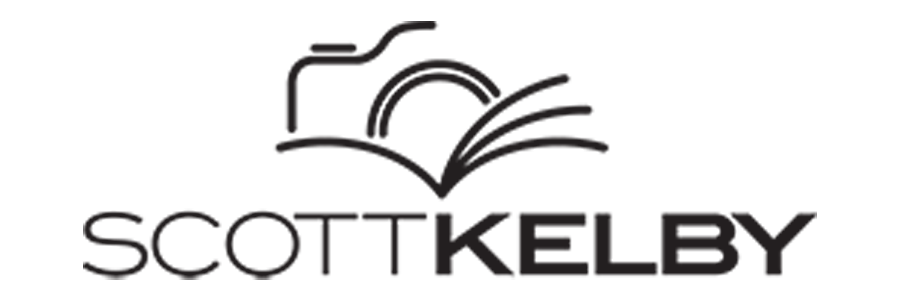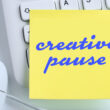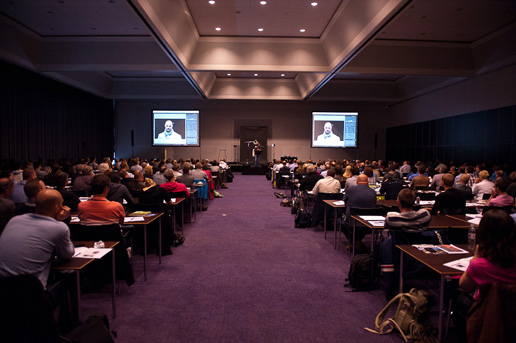…and In Vancouver, Calgary, and Toronto..and last year in London….and two weeks ago in Orlando…is that: photographers and Photoshop users everywhere are struggling with the exact same things. The same issues. The same hurdles. The same things that stump photographers in San Francisco, are stumping photographers in Germany.
(Above: Brad took this shot of my seminar in Amsterdam, just hours before his 27th birthday. Happy Birthday Braddo!)
So what is it?
It’s not just one thing—it’s lots of things. Here’s five common themes:
(1) Power They Didn’t Know They Had
A lot of people don’t realize that the things they want to do are actually in Photoshop or already in Lightroom, but since they’re kind of “hidden beneath the surface” (maybe it takes a hidden three-key shortcut, or its buried under a menu they never go under), they think they need to buy some other piece of software to get them where they want to go. I love to be able to show them that shortcut or hidden place. You can see them light up when they realize it’s already there. It’s one of the best parts of my job.
(2) Light Meters Terrify Them
Frank Doorhof (my guest speaker) did a fantastic demo about using light meters during my seminar in Amsterdam, and that’s probably why I’ve never had more comments about them. Apparently a lot of people already have them, but very few are actually using them, and they told me they’re very confused about using meters in general.
(3) Off Camera, Hot-shoe Flash.
A lot of people at my seminars already have an off-camera hot-shoe flash or two, but they are really struggling with getting the results they want. A lot are complaining about triggering problems (with line of sight triggering and TTL), and that their images look too “flashy” and obvious that flash is being used.
(4) Over Thinking Everything
When it comes to lighting, I talked with so many people who are over-thinking everything and they’re just plain overwhelmed. I blame the Internet. They read one person saying one thing, and then at the next site, somebody says something entirely different, and they have no idea which one is right (usually, they both are—because in all of this—there’s not just one way to get to the end result), so basically they’re paralyzed. I think these folks are making a lot of the process of lighting and correcting photos more complicated in their minds than it really is. They’re all tied up in Watt seconds, and the Inverse Square Law, and the physics of lighting, and it has their head already spinning before they even walk thru the door.
(5) They’re Not Sure What To Use
Because so many pros are using so many different tools, they just want some guidance. They don’t want to buy the wrong thing (the wrong softbox, the wrong lights), and they don’t know if they want to continue down the path of hot-shoe flash, or studio strobes, or continuous lights, or a mixture of both or whatever. They want to be smart with their time and their money, and I don’t blame them.
(6) They have business concerns
They’re struggling with either (a) making a living as a photographer, or (b) they’re planing on quitting their current job to become a full-time photographer (I hear that a lot), or (c) they just came out of school trained as a photographer, but they don’t have a job and they’re all looking for some tips to help them make it.
Here’s what nobody ever asks about:
(1) Composition
(2) Creativity
(3) Art
It’s all about sync speeds and settings. I also hear a lot about “Rules” as in “I read your never supposed to do [insert anything about lighting here].”
Oh yeah, more one thing. Most everybody, in every city is already using Lightroom (at least at my seminars). The few that are still on the Bridge/Camera Raw don’t know why they should be using Lightroom at all. They think it’s just another version of the Bridge and Camera Raw, and they already have those, so why switch? Sigh.
What I’m doing about it
I’ll pick up with that right here tomorrow. :)




Great to know that photographers are all in the same boat — now we can have fun shooting and learning together!
Thanks for all you do!
God bless u Scott. Its nice to knw there are others that suffer the same fate as yourself.
Some of us “know” Lightroom would help…but we have older versions of Photoshop or are Cross Platform and can’t justify(afford)another $150-200 on it :-(
Hi Scott, remember me? You signed my bag in Amsterdam. I want to thank you again for sharing. I went home very happy and convinced that I will take my photography to the next level! Hope to see you in the future. See ya!
Thanks, loved your seminar. Great tips en so much inspiration by you and Frank
It is interesting that nobody addressed composition, creativity, art etc. However, in beginner classes most people are overly focused on the mechanics when they should really look at the mechanics in light of the creative angle they want to pursue. Plus they need to given themselves ample of time for trial and error. Greats like J.McNally, J. Cowart, C.Jarvis, F.Doorhof, and D.Collins, etc. put their creative vision first and then they find a way to use traditional and non-traditional tools to create the shots they envision. On KelbyTraining, Joe adapts his techniques and tools quite a bit to get the right shot: he first gets in the ballpark and then he hits a home run. It is a balance, but I think vision should come first and the how-to aspect second.
Hey Scott, when will you stop by in Hamburg?
Interesting comment about unknown functionality and one that is not uncommon for software vendors. When Microsoft did their research prior to coming up with the ribbon menus, over 70% of features Word users asked to be added, were already in Word. They just weren’t easily accessible.
Yes, but now I can’t find the features I need. I hate ribbon menus.
damn I missed you in cologne
wanted to get my PRS signed by you
maybe next year…
I was reading your post, and I found myself in most of your mentioned points.
Please, Scott…
Enlighten us !
Cheers
Interesting summary of issues :-)
The over thinking thing is a very European characteristic.
On the “buy the right gear”. The “second hand” market (as you always mention that ebay was created to sell photographic gear) in Europe is not as hot as in the USA. So buying the wrong gear will likely mean a good deal of effort to sell it and surely a great deal of money lost in the process.
Yep, you pretty much nailed it. I suffer from all of those, which is why I buy your books, subscribe to your training web site, and joined NAPP. Just trying to get better. It is a journey for sure.
Regards,
Dave
Hi Scott,
The three things that folks never ask about Composition, Creativity, & Art are the things that have always puzzled me the most. However, I’m at a loss when it comes to asking. I don’t want to sound stupid when asking. I really feel that a lot feel the same way but won’t admit it.
See ya in 3 weeks for another bang up Photoshop World!
Mike
Count me also in the overthinking category, as Scott so very nicely pointed out to me in Amsterdam. Trouble is, with the internet, online video’s, books, etc: how do you get away from that. I’m very curious as to what Scott comes up with.
How do you get away from that? You get out and just shoot, shoot, shoot! :-)
Boy, Scott, you hit the nail on the head! I haven’t advance to the off shoe light stuff yet, I’m still working on getting it right in the camera (exposure, DOF and etc). Also, working on composition and getting more efficient with PS. I know you’re not going to like this, but since LR 3 came out, I’ve stopped using it! It has so many bugs and interface problems with my Wacom tablet and plug-ins that it not worth the time and effort to continue to use it! I’ve worked with Adobe and Wacom and Nik and I get the same finger pointing. As you say, time is money and LR 3 costs me more time. I’ve started using ADSee Pro 4 for my DB and review process and then head straight into Camera Raw and PS for final processing. Much faster than restarting LR 3 every time it has an issue with my tablet or plug-in.
Look forward to tomorrow blog!
Dennis
Comment 1 of 2.
You are bringing a techniques show so you get techniques questions. Ask a PSW instructor whose lecture is on composition, etc if his/her questions are solely technique and I’d bet you get a very different answer.
Also, when there’s a line of people to ask a question, there’s some pressure to ask something technical rather than something artistic.
Hi Steve: I’m only sharing the reality of what actually gets asked at my seminar. I didn’t make a judgement on their questions, I’m just sharing feedback of what I’m asked one-on-one by photographers at the seminars. :)
Comment 2 of 2
With regards to your flash comment, I’d like to see a Kelby Training video on using Canon flash (on/off camera, setting the knobs and buttons, etc). There’s a real shortage of good stuff for Canon, tho you have it for Nikon.
I realize Ziser has an on-camera techniques video (bounce, etc), but I’m thinking something more like Syl Arena’s book.
Thanks for listening.
Hi Steve:
We have taped two classes on Canon Flash from Syl Arena. If they’re not up there yet, they will be soon. :)
Smoooooth.
Syl Arena has a good book out about this as well: http://www.amazon.com/Speedliters-Handbook-Learning-Craft-Speedlites/dp/032171105X/ref=sr_1_2_title_0_main?s=books&ie=UTF8&qid=1313422600&sr=1-2
Yippie! I’ve been longing for this. Canon’s flash system has irked me for too long.
It seems that the same issues abound for all creative fields. People don’t seem to be too hard up for inspiration or doing the work, but so many people seem to be afraid that everybody else is doing it right but them. Perhaps knowing that so many others are still trying to figure it out can let people relax a little and put less pressure on themselves. It’s work, but it’s supposed to be fun, too. You’re never finished learning.
Looking forward to tomorrow’s thoughts.
When I was younger I always struggled with exposure and film. Not being able to see an image until it was developed just frustrated me to no end and then seeing a great shot getting blown out because of bad exposure, just plain sucked. Now with all the new tools, I have to agree with your comments. Yes, the TTL flash is a great tool but I can never get the flashes to work like, say Joe McNally. Trying to use external triggers, like Pocket Wizards still won’t do what I think I’m doing with the light. On every shoot I go on, yes, I’m now over thinking technique and not just doing, because of all the tools available. Don’t know the answer to all this, certainly I’d like to get the small flashes to work well.
I have never had the opportunity to attend one of your seminars Scott but if I did I would ask questions about techniques, publishing, printing, PS and/or LR, etc.
I would not think to ask you questions about composition, creativity and art simply because you don’t discuss them in your blog that I read everyday.
I would more likely visit the Lighting Essentials blog for that type of information.
Stewart:
I’m just sharing what I get asked, and don’t get asked. That’s all. I wasn’t making a judgement—just giving feedback. :)
Hey Scott will ya ever be coming to Ireland with your seminar would love to do one
Scott, I now understand what you were saying about LR! I have had both versions but didn’t make the switch until several months ago. It was one of the best photo moves of my life. Thanks to all the training at Kelbytraining.com (and watching it many times, slow learner) I finally got it.
Wondering if you guys saw this app by Phase One? :
http://itunes.apple.com/us/app/capture-pilot/id404906435?mt=8#
It’s always comforting to know that there are others dealing with the same issues, that you’re not alone. Thanks for sharing, Scott.
How about a class on using light meters? I have a light meter in my camera bag that rarely sees the light of day. It’s the most frustrating piece of equipment I’ve bought.
Take a look at some of Frank Doorhof’s classes on KelbyTraining. He shows how he integrates those light meter readings into his photography.
My perspective on it is simple. Most people pass along what they’ve heard, but never actually think about something for themselves. If they don’t have a foundation to understand what’s going on with lighting, then much of the training is Show & Tell for them. They try to repeat a recipe that they saw, but don’t understand the basics of why it worked. Then they get home, try the recipe and it doesn’t work because some variable was different – such as the distance from the light source to the subject.
Listening to people discuss the physics of light is a source of grand entertainment for me, so please don’t discourage them from doing so. I need the comic relief.
I agree, if after watching the video training and going to seminars one doesn’t go out and practice the lighting and flash tecniques, its a waste of time.
I’m one of the people still using Bridge/Camera Raw and have yet to have someone who is using Lightroom give a solid answer as to why I should learn Lightroom. Do you have a blog post I can read that will provide some answers as to why Lightroom is worth learning? Am I really missing out?
Yes, you’re really missing out. Go to http://www.photoshopuser.com/lightroom for 100 reasons why Lightroom kicks the Bridge’s Ass! :)
I finally agree…..now for Dave Cross. 8-)
WOW!!! Thank you dearly for the extensive reasons. I haven’t even made it through all 100 reasons yet and I am totally convinced. Why didn’t I learn Lightroom sooner is now my question. Just got an e-mail from Adorama for $150 off Lightroom today and I’m going to take advantage of it now. Thank you so much for the videos, they are immensely helpful and filled with great information.
Interesting, thanks for posting. And HAPPY (late) BIRTHDAY BRAD!!!!!!!!! :-)
Thanks Jen!
Hi Scott,
I attended your Amsterdam seminar (travelled from Brussels) and would like to thank you again for the excellent event you and your team put together. The value I received was amazing. I not just learned a lot of technical points but my true value came from both the energy and passion you portrayed on stage. You helped me remove many fears associated with being a professional photographer, and I thank you for that!
I look forward to attending future seminars in different cities.
All the best from Brussels
Kamyar
The Steelers fan :)
http://www.raymakphotography.com
Composition – yes please – this topic is a constant in my mind whenever out shooting but never read a good book on this subject yet. I should enrol on Fine Art course….
Off camera flash gurus for your training courses: Neil Van Niekerk in USA and Damien Lovegrove in UK – both masters of the art.
Hi Scott,
It’s human nature over complicate things because we believe that they are complicated in the first place. I like the way that you, and your colleagues, try your best to simply things.
Great post, can’t wait until tomorrow’s follow up!
DC
Hi Scott. I see you talking a lot about Lightroom, seeing as you are close to adobe, and all the stuff you do regarding photoshop and LR its understandable. But I am actually curious about your thoughts on apple’s aperture 3. Personally it works better for me than lightroom (I feel way more confortable in aperture, while LR feels kinda clunky to me). Care to give your opinion on this software?
PS: Love your books, you cant imagine how much they help me :)
Interesting post, Scott. In regards to the three topics you never get asked about, how about doing a separate blog post on each (maybe over the course of a month) to address how you approach each of them when you’re out on a shoot? That could give us some insight on how you think when you are framing up a subject. I know it all depends on the artist and what they’re trying to capture, but it might be fun to see things through your eyes, and not sweat all the technical stuff for once. I imagine that even you have been stuck once in a while on those three topics, so how do YOU get out of the doldrums?
BTW, you listed 6 themes when you said there would be 5. Don’t confuse us like that! :)
–John
Hey Scott. I know you love LR, and I think it is the logical upgrade for people who are used to bridge+photoshop. But I personally feel LR a bit clunky for me, and I feel a lot more confortable using Apple’s Aperture (running for cover from angry mob now!). I was just curious about what you think about Aperture, I take it you already tried it out and have the reasons you like LR best.
And thanks for all the awesome books! Theyre amazing! So easy to read and understand, keep it up please! :)
Regards,
Fernando.
Hi Fernando: I actually own Aperture (I use it for making slideshows and books, which is does wonderfully well). However, I have a long list of reasons why I like Lightroom (which I don’t have the space to go into here), and that’s why I use it, but I’m no Aperture hater on any level. :)
Off-camera flash is SO important for so many reasons. Red eye? What red eye?, for starters. I’ve been using slave units for years, even before digital when experimenting with off-camera flash meant spending more money for the duds. Now that it’s all “ones” and “zeros”, piece of cake! Recently got a set of radio controlled flash triggers and love the system. And if I shoot a dud, so what? Just shoot again!
Hi Scott,
The lightmeter thing is something that I’ve always had trouble with. I also own one and never use it.
It would be great if there could be something on D-Town or Kelby training on this.
We met at your Toronto seminar and I hope that you encourage your other seminar tours to come north of the border.
Keep up the great work.
Hi,
Check some of my classes, I explain the light meter use in every class.
For more in depth watch the studio classes, but also on all other classes I use and explain the meter.
It’s often indeed over thought, using a meter is very simple but people somehow think it’s very complex.
I think the reason why people are not asking about creativity, compoasition and art is that they are simply intimidated by the technical stuff. Most people wand to make it right. But was is right? In the seminar it seems what you are doing is right, right? Yes and no. Of course you are doing it right your way, but Calvin did it right his way – it is simply another one. And every other one can do it differently and it could be right also – and of course vieved wrong by some as well. That is taste and it can’t be taught. Anyway what I want to say it is easier to learn the technical aspects than the creative aspects. Everyone can follow an instruction click this than ALT-That, afterwards SHIFT-etc. yada yada yada. But the creation, the idea, totally different. For sure you know that too Scott. Every Artist I think is once at the point where the inspiration is down zero. I remeber a video guest blog form Zack Arias in all grey mood decribing the phenomenon. At this point of lack of creativity surely most can do some retouching, but if you fail to capture a good shot you won’t have anything to retouch. That’s why most photographers first concentrate on the technical stuff rather than creativity – at least this is my opinion.
I hope everyone can follow my thoughts – I couldn’t :))).
Cheers
Hello Scott,
I just turned on you interview while I was here working the late shift in Chicago. This really is the greatest interview/content that you have ever done. You have touched on points that I ponder on all day as a professional graphic artist every day. When I consider whether or not to try my hat at becoming a professional photographer full-time, The points that you make in response are just what I consider. I love the technical stuff, but that stuff never matters when your looking at an unusable image. This is where most of the people who call themselves pro-photographers falter. Back in the days of film, you were not a photographer if you didn’t print your images and now people think that posting your portfolio on Facebook or social media is all they need to do. You know all about that, but I say this. You should do a new platform where you are interviewing photography professionals in the industry, one-on-one. You have the grid and that is great, but what I just heard is truly kerning inside me. You do not even need be the host, but use Kelby media as the platform for artist to speak personally and candidly for a half hour, hour or so. Do you remember those PBS interviews with interesting people of the nation that use to come on??? There you go! It can be pure audio also. I was hooked to the interview and I didn’t need to see anything on the screen, like Kelby Radio….was that an idea??? If you like the idea, fly me to your office for a day or two to brainstorm.
I hope this helps and keep up the great work, I will meet you one day soon.
Thanks,
David Shepherd